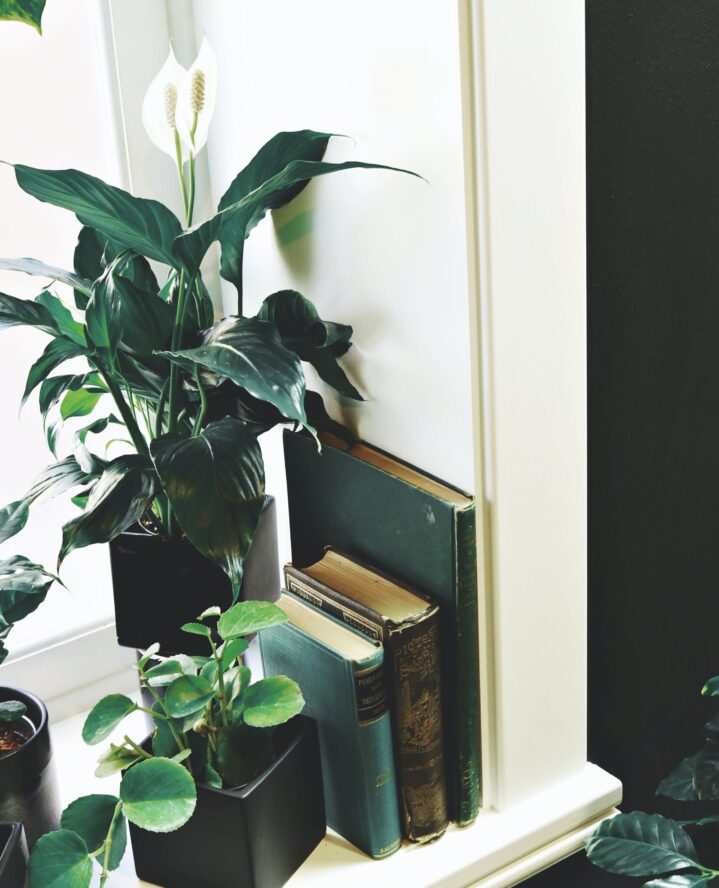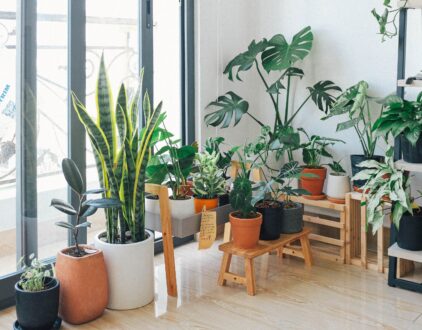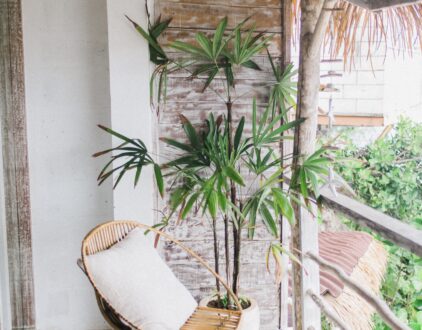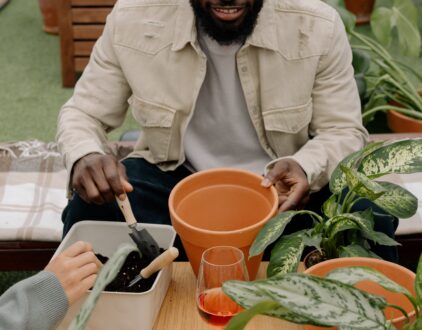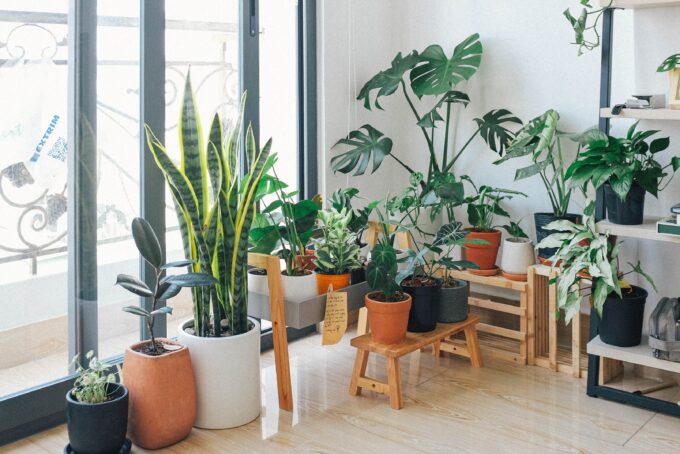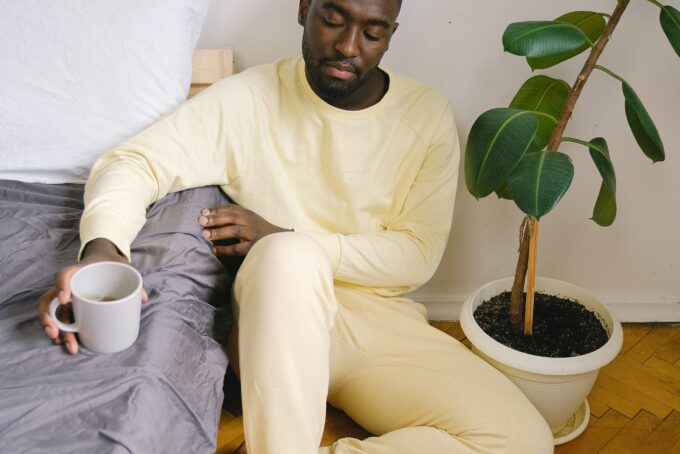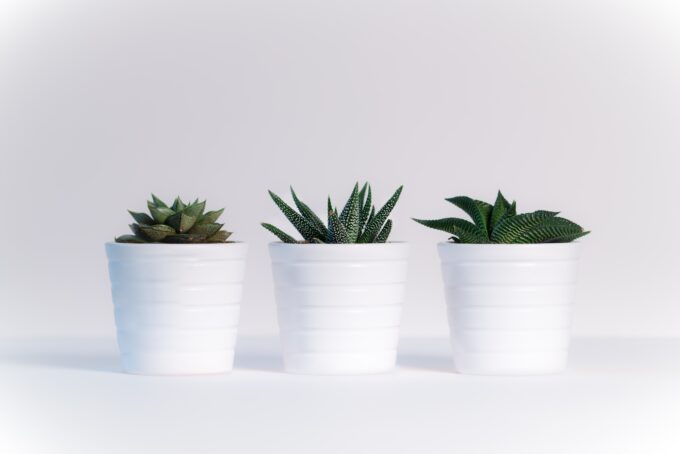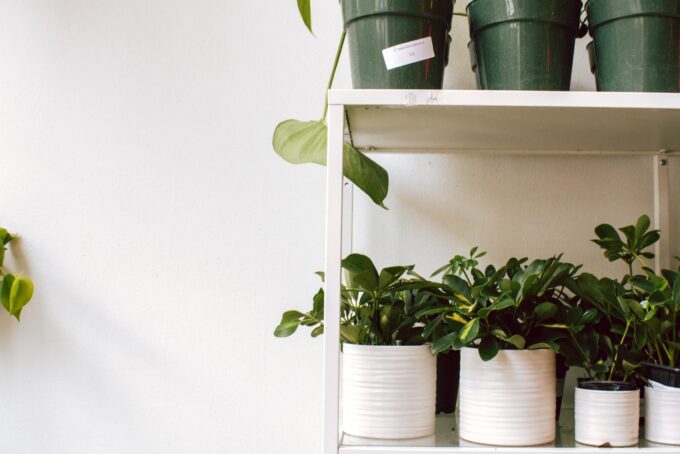Getting ready to travel for extended periods of time means prepping your home for departure. This includes cleaning up, doing laundry and making sure systems like the air conditioning are off. But what about your plant babies? The last thing you want to discover when you get home after a relaxing vacation is to be greeted with a plant graveyard. But don’t worry—we’ve got you covered with a few ways to tackle this issue.
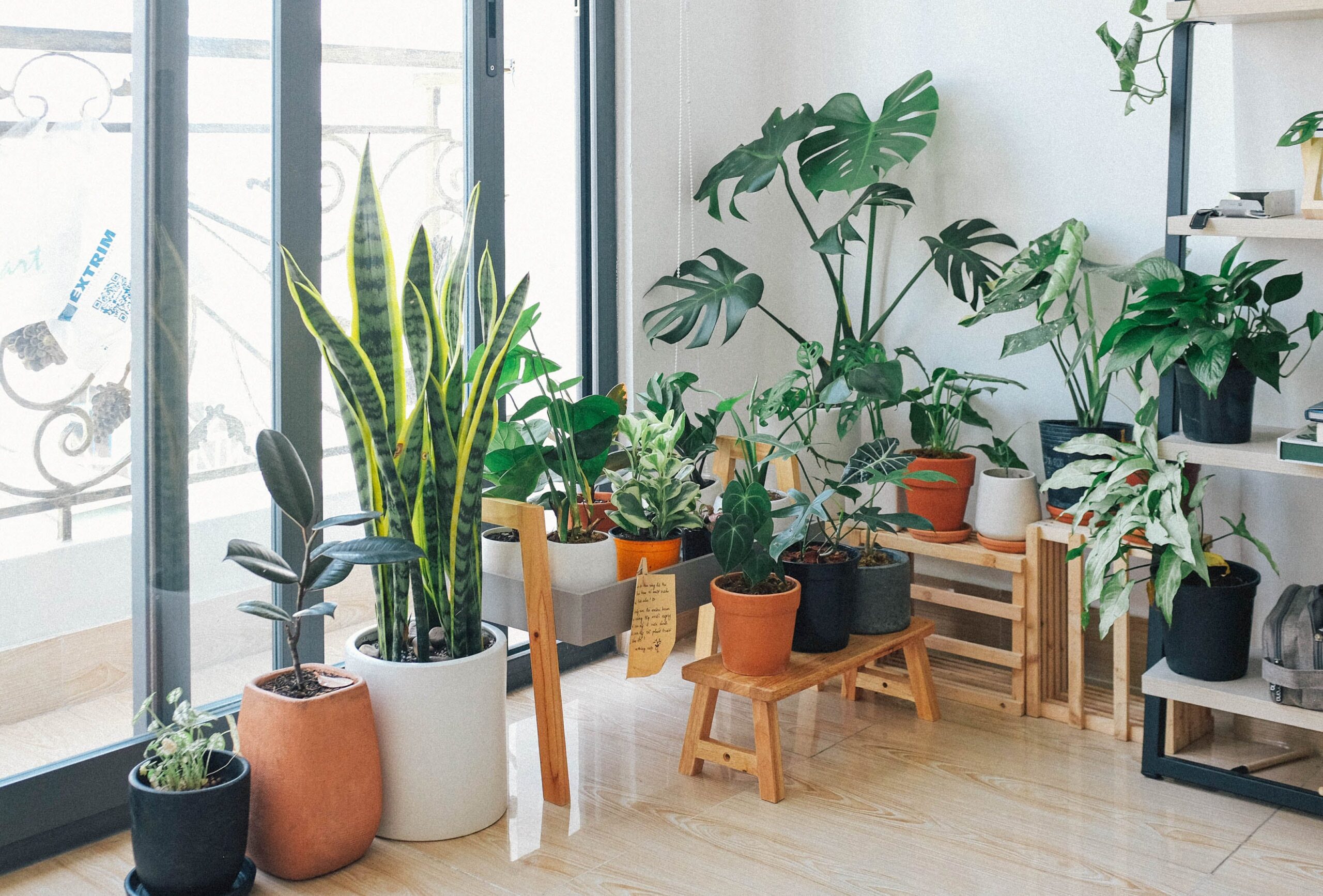
Keep Hydration on Point with a Watering Strategy
When caring for your plants during your vacation, your top priority should be keeping them hydrated. While it can get tricky because some plants require more water than others, you might be surprised that some plants prefer drying out before re-watering. Meaning, you may have longer than you think.
In the warmer months, plants often need more water, from every few days to one-to-two weeks. In the winter, you have a little bit longer—some plants can even last more than a month. But to be on the safe side, here’s a detailed watering strategy to maintain ideal moisture levels.
Hydrate Before You Go
A day or two before your departure, give your plants a thorough soak. This makes it so they start your vacation well-hydrated and less reliant on frequent watering.
Self-Watering System
For trips spanning more than a couple weeks, investing in self-watering planters or watering spikes can help keep your plants happy and on a schedule. These devices gradually release water as the soil dries out, providing a consistent moisture supply.
Group Plants Together
Cluster your plants in a designated area. This creates a microenvironment with higher humidity, slowing down the rate of water evaporation and reducing the need for frequent watering.
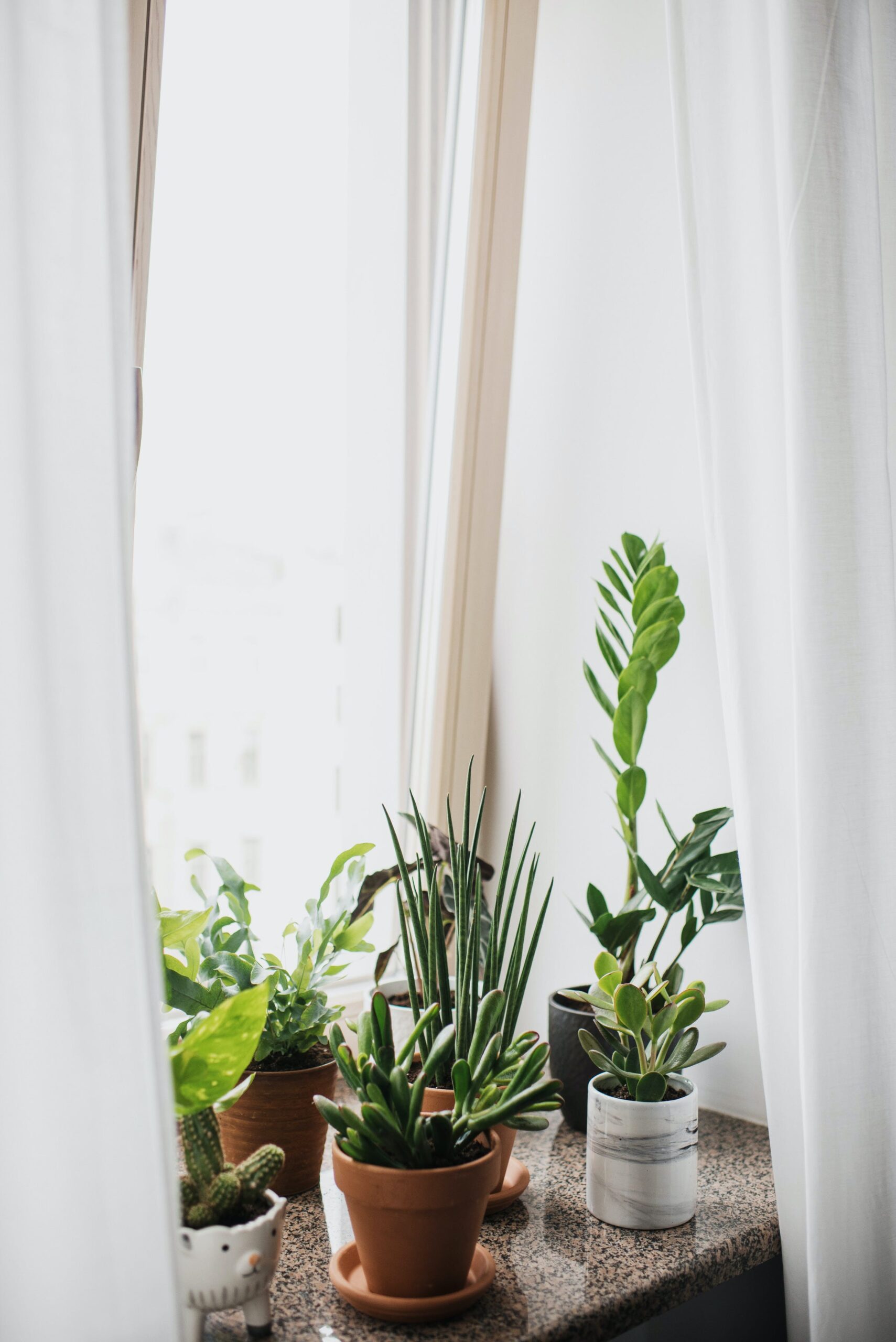
Light and Location
While natural sunlight is essential for plant photosynthesis, you can’t bring your vacation destination’s climate to your home. Chances are, you’ve figured out the ideal location that keeps your plants happy with sunlight. But if you’re leaving, you might be closing blinds and curtains, causing your plants to miss out on essential sunlight.
Choose Wisely
Before you go, assess the light requirements of each plant in your collection. Move sun-loving plants closer to windows where they can access more natural light, and position shade-loving plants away from direct sunlight.
Timers and Smart Bulbs
To mimic natural daylight hours, consider using timers or smart light bulbs. These can be programmed to provide the right amount of light each day, even when you’re not around.
Trim and Prune
Pruning your plants before you leave can help with their overall health. Here’s why it’s important.
Remove Dead Growth
Snip off any dead or yellowing leaves and spent flowers. This not only enhances the appearance of your plants but also redirects their energy toward healthy growth in your absence.
Control Growth
For fast-growing plants, pinching back the tips can help prevent them from becoming unruly and out of control. This will help them maintain a tidy appearance while you’re away.
Plant-Sitters
If you’re getting anxious about leaving your plants to fend for themselves, consider asking a trustworthy friend, family member, or neighbor to check in on your plants periodically. If you have someone house sit, this also adds to the peace of mind of knowing someone is watching your home.
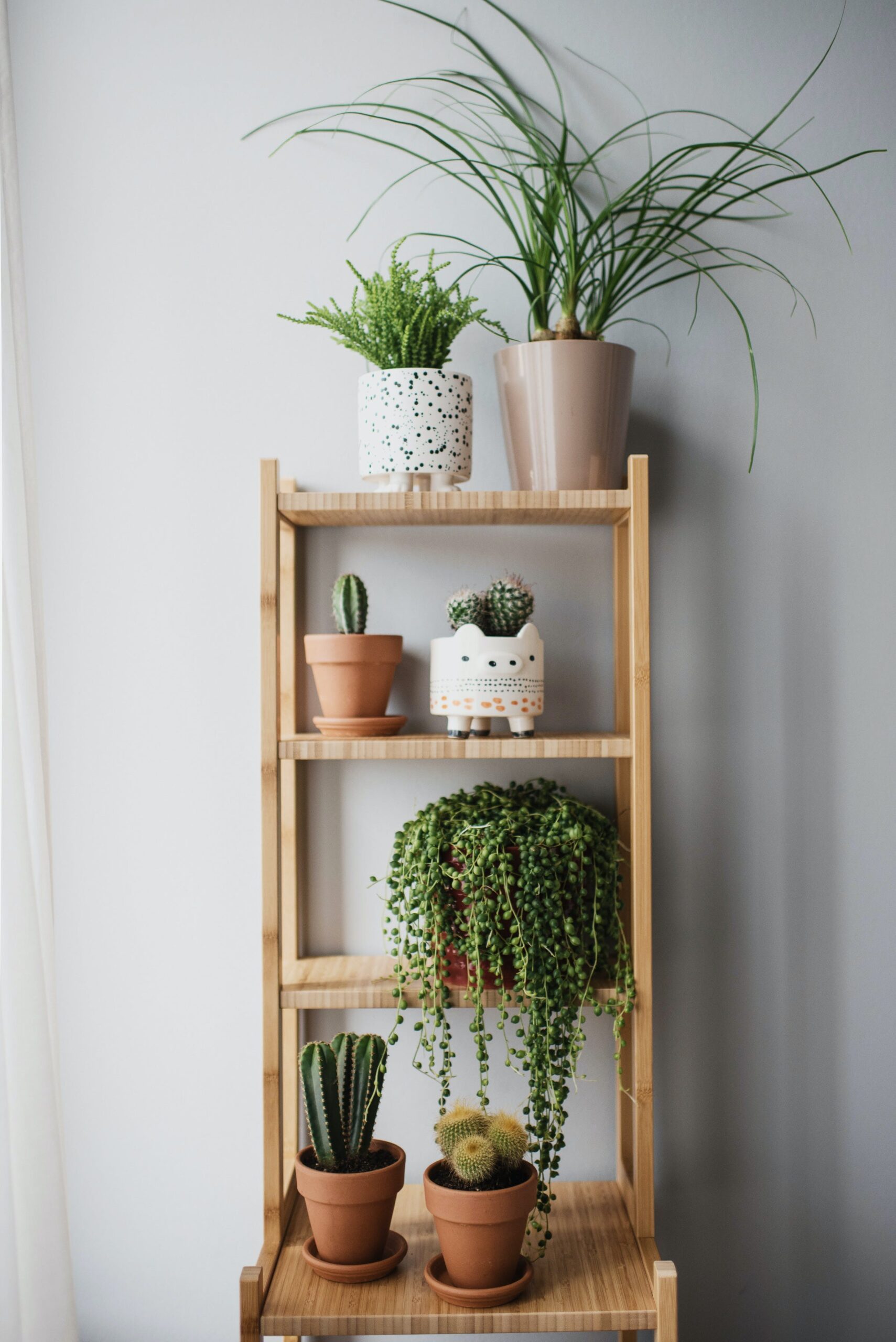
Prevent Over-Feeding
While you might be tempted to shower your plants with nutrients before leaving, you’ll probably want to exercise restraint. Overfeeding can be detrimental to plant health. Instead, a week or so before your departure, apply a slow-release fertilizer or organic plant food. These options provide a steady supply of nutrients over time, preventing the risk of over-fertilization.
Pest Prevention
Returning to a pest-infested indoor jungle is not ideal. Conduct a thorough inspection of your plants for any signs of pests or diseases. If you notice any issues, treat them accordingly before you leave. And, as a preventative measure, apply a neem oil solution to your plants. Neem oil is a natural and effective way to deter common plant pests and keep them at bay while you’re away.
popular posts
- 1It’s Black Business Month, So Let’s Go Shopping and #BuyBlack!
- 2These Home Decor Items Will Instantly Make Your Space Look Outdated
- 3Black-Owned Home Decor Stores To Support Across the United States
- 4A Look Inside Elon Musk's Tiny $50,000 House
- 57 Black and Multicultural Designers To Follow For Design Inspo
Spaces
Whether it’s luxury or ease, every area of your home should be as fabulous and unique as you.
FOLLOW ALONG ON INSTAGRAM
#homeandtexture
Find us on social for more home inspiration where culture, personal style, and sophisticated shopping intersect to help you create a home where you love to live.
